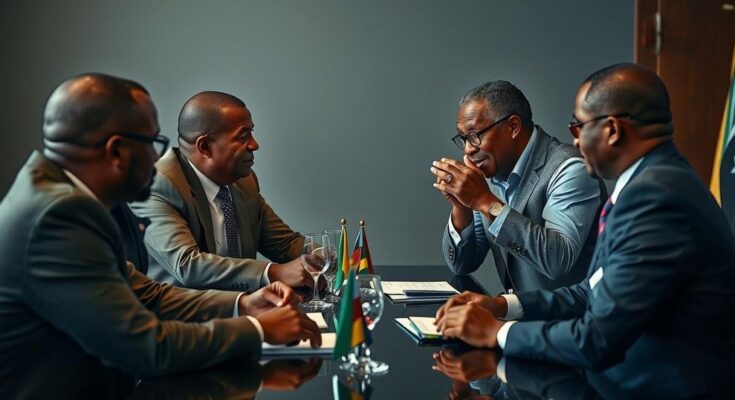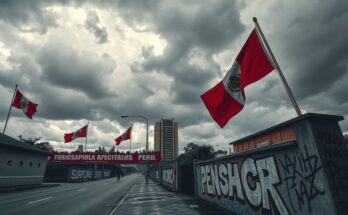Mozambique’s presidential runner-up, Venancio Mondlane, has agreed to discuss with President Filipe Nyusi following violent protests that have led to at least 30 deaths. Nyusi emphasized the need for dialogue to alleviate economic disruptions caused by the unrest. Mondlane plans to submit an agenda proposal for the talks aimed at addressing the controversial election results and the ensuing violence.
In Mozambique, Venancio Mondlane, the runner-up in the recent presidential elections, has agreed to engage in discussions with President Filipe Nyusi. This initiative is aimed at resolving ongoing protests and violence that have resulted in the deaths of at least 30 individuals since the elections held on October 9. Nyusi emphasized the need for dialogue during his state-of-the-nation address, highlighting the negative impacts of the demonstrations on the country’s economy, including disruptions to businesses and employment.
Mondlane announced his acceptance of the dialogue offer through his social media, indicating his intention to submit a proposal for the agenda by Saturday, with the talks scheduled for the following Tuesday. While the president’s invitation extended to other candidates, including Daniel Chapo, Ossufo Momade, and Lutero Simango, their responses remain unreported.
The unrest began following the election results announced on October 24, in which Chapo, representing the ruling Frelimo party, was declared the winner with approximately 71% of the vote, compared to Mondlane’s 20%. As protests erupted against these results, Human Rights Watch reported that while many demonstrations were peaceful, some turned violent, leading to severe responses from security forces, which included the use of tear gas, rubber bullets, and, in certain instances, live ammunition. This has resulted in over 800 injuries, including that of 66 security personnel.
Human rights organizations, including Human Rights Watch and Amnesty International, have condemned the violent actions taken by security forces and called for accountability regarding the treatment of detainees, urging international bodies to advocate for the preservation of fundamental human rights in Mozambique.
The political landscape in Mozambique is currently tense following the recent presidential elections, which have sparked protests against the ruling party’s declared victory. With historical issues surrounding electoral integrity and political dissent, the recent unrest highlights significant social dissatisfaction. The involvement of various political candidates in the proposed dialogue reflects an attempt to bridge divides and seek resolutions to ongoing conflicts. However, the situation remains precarious, as it not only affects politics but also impacts the overall welfare of Mozambique’s citizens.
In conclusion, the ongoing unrest in Mozambique post-election has drawn attention to significant political tensions within the country. The dialogue between President Filipe Nyusi and Venancio Mondlane marks a crucial step towards addressing the grievances that have led to violent protests and numerous casualties. As both parties prepare for discussions, there is hope for stability and the restoration of peace, but the effectiveness of these talks remains to be seen amid international scrutiny over human rights concerns.
Original Source: www.voanews.com




